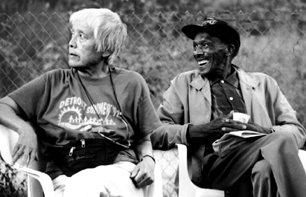I have been reading some of the writings of a Chinese American anarchists who were active in San Francisco in the 1920s. One of the leaders of the group, the Equality Society (平 社 )was a Chinese worker called Ray Jones, 刘钟时。So far, the group is best known for the correspondences between Jones and Ba Jin, a well-known Chinese anarchist who just recently passed away. Their writings to one another show the kind of dedication that both parties felt toward disseminating anarchist ideas, mainly in the form of a monthly journal, called Equality, or 平等. Ba Jin was also actively translating a lot of anarchist literature, by Berkman, Kropotkin and the like. He was sending a lot of these to Ray Jones with the purpose of disseminating it to Chinese workers, not just in the US but also in Cuba. In his archives, Ray Jones receives letters from workers at the sugar plantations in Cuba, who are trying to organize resistance against the plantation supervisors for their miserly treatment. Also in Ray Jones archives, I found flyers that the Equality Society was distributing at that time, advocating for Chinese workers to resist both the KMT and the CCP, both of which are statist formations that will squash workers under capitalism, albeit different forms. They also tried to organize solidarity strikes in SF Chinatown for the longshore workers union in San Francisco in 1934, as well as the Chinese workers in the garment factories in 1937. They maintained a strong class perspective during the anti-Japanese war resistance. The flyers that they put out on in commemoration of May 1st Labor Day in 1938 (?) was a commentary on the anti-war resistance in China. They warned Chinese workers that the bourgeois parties were going to make use of the war resistance effort to create legitimacy for themselves, and that workers should see through that and fight not only Japanese militarism, but also their own Chinese ruling classes along the way. They showed an earnest sense of internationalism when they published essays by Japanese socialists who were facing repression during the WW2 period, making clear that there was a strong anti-war resistance movement in Japan that was brutally squashed. They quote Shifu, the figurehead of Chinese anarchism, that one's loyalty should not be to any one country, but to the whole of humanity. This is in the tradition of strong anti-nationalism within anarchism.
This research on the Chinese Am anarchist scene in the early part of the 20th century is on-going. The One Big Union Monthly, the publication of the Industrial Workers of the World back in the 1910s, has an article called The Chinese and the IWW, which documents how Chinese workers organized during that period. I'm excited to get a copy o this article soon. It seems though that there is some literature floating around about Chinese workers organizing during that period, such as Chris Friday's Organizing Asian American labor : the Pacific Coast canned-salmon industry, 1870-1942 and Jean Pfaelzer's Driven out : the forgotten war against Chinese Americans
More later,
Jomo
12/10/2007
Chinese American anarchist tradition
Labels:
Ba Jin,
Chinese anarchism,
Equality Society,
Ray Jones,
Shifu,
working class,
World War Two
Subscribe to:
Post Comments (Atom)





1 comment:
嗨,我住在香港,也加了aan。我沒有去到「研究」那麼系統啦,我只是閒來看到有趣的文本,貼貼而已。
Post a Comment